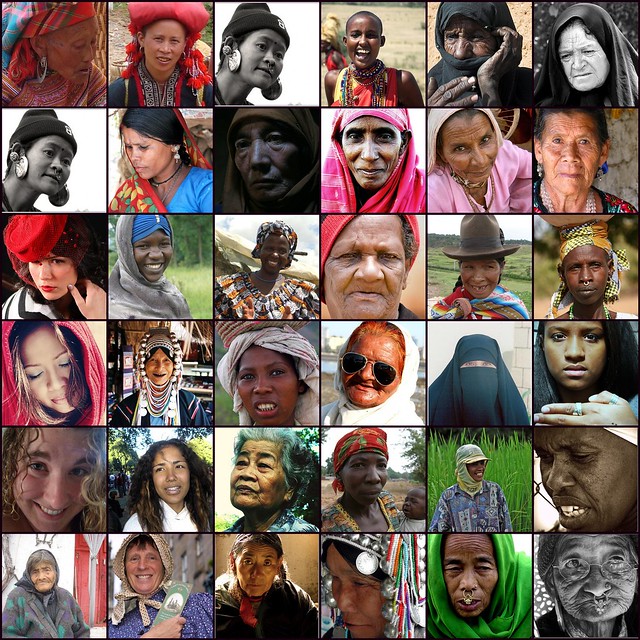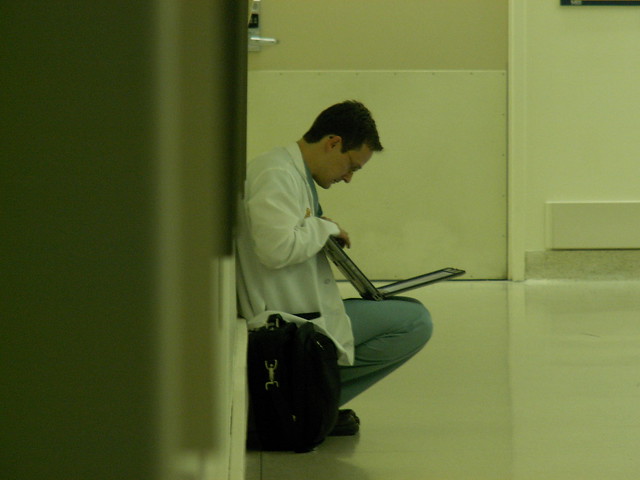
Image: Open by
Justin Marty
Last night I had quite a few learning episodes on Twitter. It started with
Christian Assad's post about how Twitter could be used for learning. He is training in cardiology and is aware that
troponin (a protein measured to assess damage to the cardiac muscle) levels are often elevated in those with poor renal function. But seemingly this is still a hot topic, and is not acknowledged yet by labs or many doctors. So Christian tweeted an eminent cardiologist to see what he thought and got an ambivalent response. But the key was that it was ambivalent. He didn't just state that, 'No, there is no evidence that renal function is related to troponin levels', he hedged his bets.
Christian saw this as an illustration of how cardiologists could learn on Twitter. But I think it tells us a lot more about learning in the open. I am not a cardiologist. I'm a generalist. I don't diagnose NSTEMI ( a type of heart attack in which diagnosis is partly dependent on troponin levels) but I do manage little old ladies who are discharged on multiple medications after having NSTEMI diagnosed in hospital. So I was interested in this and through commenting on Christian's blog I was able to discuss this issue with him.
And of course patients and the wider public will also be able to gain insights into how many of the things which seem certain in medicine are perhaps not so certain. And that I hope can only be for the good.
I was just recovering from that clinical learning experience when I saw a medical student from Manchester tweet that she had found a tablet somewhere that she didn't recognise. Neil Mehta has done a great job of documenting the learning that came out of that episode on his blog,
which you can read here.
There was a suggestion that the pink, oval tablet with EC stamped on it might be aspirin. Out of this rose a very interesting discussion with Jessica Ote, who is training as a family doctor. She asked if there was any evidence that taking NSAIDs (drugs like ibuprofen) with food helped to protect the stomach. I've saved our twitter discussion here using Keepstream, but unfortunately it doesn't embed well (you need greater customisation of embedding, Keepstream!),
so you'll have to go to the site directly.
What these examples show is that social media allows us to document our clinical learning, and more importantly the questions we are asking, in the open. These questions don't have to remain in our heads. Next our networks can help us to answer these questions. And then the real benefit is that the learning is there in the open for everyone else to access. These networks can cross medicine (specialists and generalists), other professions (pharmacy, nursing, midwifery, OT), students and the patients and public.
We might even go and find the relevant wikipedia articles and decide to make them better!
PS Another great example of clinical learning in the open is
Twitter Journal Club (#TwitJC) which starts tomorrow evening Sunday, 5th June.
And if you want a simple way to record your clinical learning that is happening in the open, have a look at
TILT (Today I learned that...) from
Jon Brassey, and the
Tripdatabase team.
And I should point out that in the initial version of this post I stated that troponins were hormones. This was lazy. I was thinking of kinases (which are also measured to determine cardiac damage, but in any case are enzymes not hormones.) Christian kindly sent me a private message through Twitter pointing out that troponins are proteins, which along with actin and tropomyosin, are needed for cardiac muscle contraction. I've now corrected above (and added the wikipedia link so you can learn more) but I thought in the spirit of openness that I should document my mistake. Thanks Christian!



